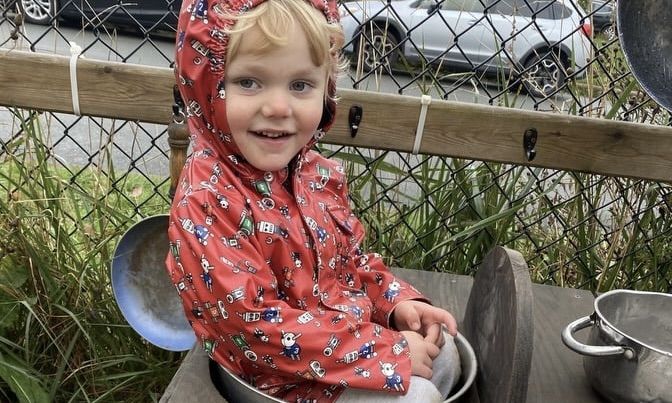Province reconsiders options given to private child care operators
Daycare owners to keep fighting, advocate calls for better communication

caption
A child at Bright Side Early Learning Centre in Cole Harbour. The province is reconsidering the options they gave private childcare centres last week.The province is committed to the new child care funding agreement with Ottawa, but will reassess the options given to private operators.
“We are taking their feedback and looking at how the options that were previously presented can better address their needs,” said Education and Early Childhood Development Minister Becky Druhan on Friday.
And the March 18 deadline for private operators to decide if they will change their business model has been extended, the government announced Thursday.
The change comes after significant pushback from private daycare owners who want to keep control over their businesses, as well as from parents and early childhood educators concerned about the effects of the new system. Related stories
Last week, private operators were told they can join a new central organization in development, transition to a non-profit model or opt out and give up funding.
Centres do have the option to keep their funding and remain private, but certain administrative duties such as wait lists, fee payments, admissions and the hiring of educators will be turned over to the new organization.
Private operators to keep negotiating
“We were pleased with the progress and the opportunity to discuss these options in further detail,” said Lisa Beddow, owner of six Friends for Life child care centres across the province.
“It’s not over yet,” she added.
Beddow said the province’s private operators are preparing a proposal for the premier and education minister that resembles Alberta’s agreement, which allows owners to maintain control over their businesses.
Premier Tim Houston told CBC on Thursday that Nova Scotia is looking at other provinces’ agreements and will be talking to the federal government.
Concern from parents
Jody MacCormack co-ordinated a letter-writing campaign among the families at the private daycare in Halifax her toddler attends, London Street Academy.
She is on maternity leave with her second child and worries her daycare could close before she returns to work.
“If I lose the access to this quality child care because it’s just not financially viable (for the owner), I would have to rethink my ability to be employed,” she said.
And if the daycare opts out and loses funding, MacCormack said she’d be paying 40 per cent higher fees.
“I think that what (the government) is trying to do is pit parents a little bit against daycares, saying that the parents would be angry with daycares if they don’t opt in.”
She said she’s “ecstatic” about the deadline extension, but is still nervous about “handing the reins over” to an organization that doesn’t exist yet.
“I chose the daycare and the owner and operator that my children go to because I trust her. I trust the way that she runs her organization … I would be extremely uncomfortable with that being run by a centralized group of bureaucrats,” she said.
Advocate says province jumped the gun
Nikki Jamieson, co-ordinator of the Nova Scotia chapter of Child Care Now, which advocates for a publicly funded child care system and represents parents, educators and other groups involved in childcare, said the province was too quick to start reconsidering the terms of the agreement.
She said the government should have clarified the details of the plan and published the documents given to the private sector before deciding to reassess, and that poor communication is leading to misinformation.
“We’re the only province that’s following an evidence-based research model that’s truly progressive and encompasses this universality that advocates and researchers have been calling for over the last 30 years. But unfortunately, we’re not seeing that narrative right now,” she said.
Jamieson said because the centralized system is still in development, Nova Scotians have a chance to “come together and build (it) in a way that works for everybody.”
She said that private operators’ concerns need to be considered, but thinks that their concerns can be fixed within a centralized system.
“We really need to come together to demand that it’s like the system that we want to see, instead of fighting against the framework, because the framework is researched.”
“I think that Nova Scotia should be leading the way. We have the opportunity to.”
Editor’s note: This story was changed on Jan. 24 to clarify those represented by Child Care Now.
About the author
Kaija Jussinoja
...
